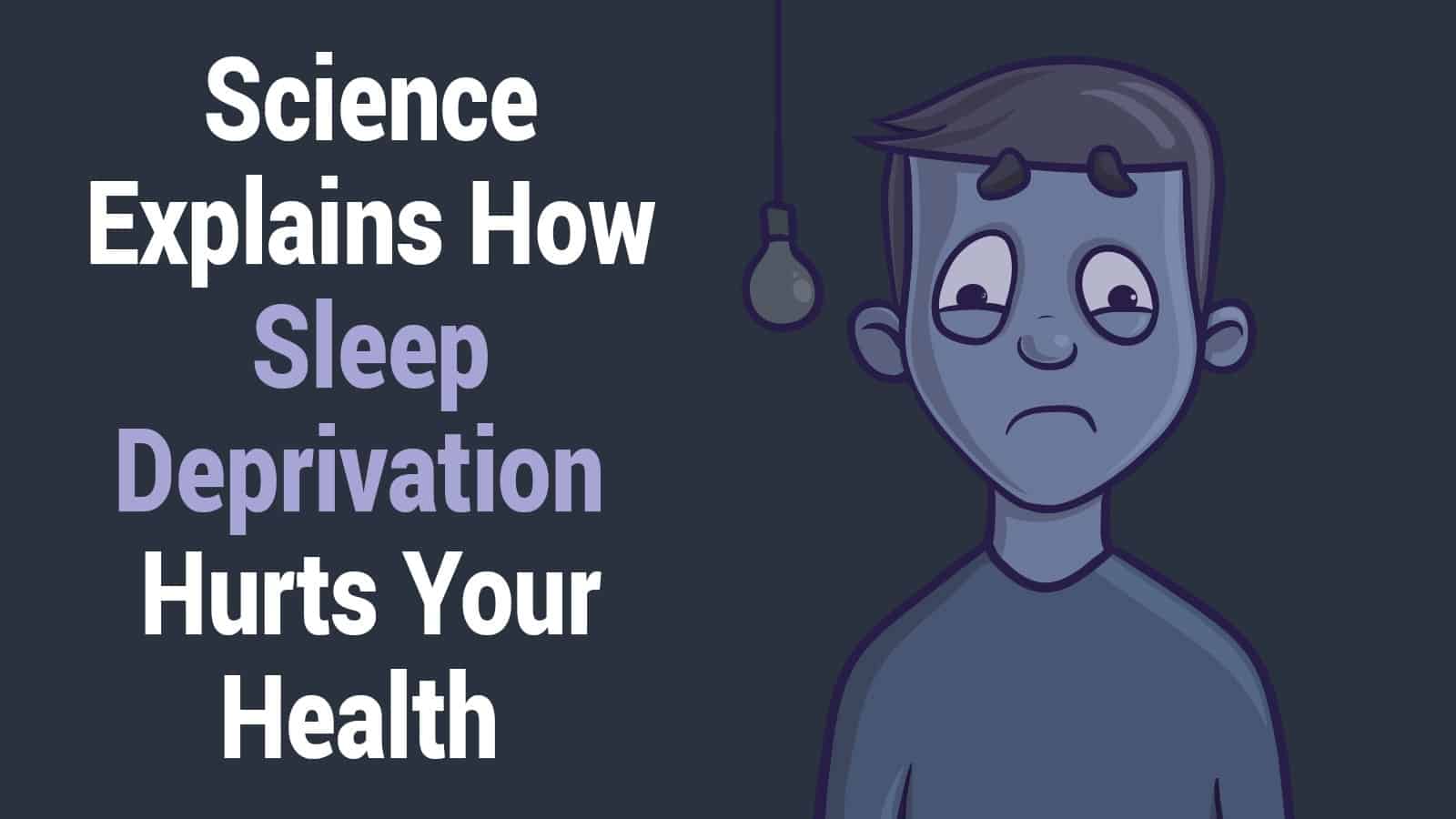Sleep deprivation is a little like when you are buzzed from drinking. You may not realize the effects it’s having on you until afterward. A lack of sleep affects your mood, coordination, memory, focus, and weight. It also contributes to various health issues.
According to the Center for Disease Control, sven hours of sleep is considered the average recommended amount of time. Recommendations for sleep time decrease as age increases, with infants needing 12-16 hours, children 1-5 years of age needing up to 13-14 hours with naps, and children ages 6-12 needing between 9-12 hours. Teenagers should get about 8-10 hours and adults under the age of 65 about seven to nine hours.
There are a few things that can contribute to a lack of sleep – children, studying, health issues, illness, poor decisions regarding bedtime, work hours, and more.
You might wonder how widespread sleep deprivation actually is? Consider that 37 percent of 20-39 year old’s, 40 percent of 40-59 year old’s, and about 35.3 percent of adults overall report receiving less than 7 hours of sleep in a 24-hour period.
What are the fatalities related to sleep deprivation?
Roughly 100,000 deaths occur each year in United States hospitals due to medical errors related to sleep deprivation. Additionally, 1,550 deaths occur due to drowsy driving. There are an additional 40,000 yearly nonfatal injuries related to driving while tired. These statistics do not even show the amount of health-related deaths due to sleep deprivation.
Scientists have been studying how sleep deprivation can make you more distracted, affecting your judgment and muscle coordination.
What Is Sleep Deprivation?
Sleep deprivation is defined in two different ways:
- The lack of sleep due to your actions. This is usually attributed to college students staying up late to cram for finals, parents caring for young children who are ill, or those staying out late for a party while knowing they will need to get up early for work the next day. The decision to sleep or not was arguably under your control.
- The results of ongoing sleep loss, whether a conscious decision or not. This type of sleep deprivation occurs over an extended period of time where the person gets less than seven hours of sleep per night. Persistent sleep deprivation is termed as sleep debt, which is the difference in the amount of sleep you did get vs the amount you should get. This sleep debt will accumulate over time.
For example: You stayed up late and only got four hours of sleep one night. The following night, you only slept six hours. Your body now needs to make up for a loss of 4 hours of sleep. Should you be able to go to sleep on the third day, you would need to get the normal seven hours of sleep plus the four hours you are missing to get back on track. You could also do two nights of the 7 hours plus 2 extra hours to gain back the lost sleep. This definition of sleep deprivation may point to a chronic problem, which may cause or be the consequence of a sleep disorder.
Understanding the difference between the two is very important.
In the first definition, you have control. You can choose to go to bed earlier or take short naps during the day. Part of this decision may mean giving up more fun activities and not using your phone, tablet, computer, or TV prior to sleeping to ensure you fall asleep successfully.
In comparison, if you have developed a sleep disorder, there are more complicated methods which may need to be employed to get proper rest. It may not entirely be under your control without medical intervention.
Behaviors related to distraction and sleep deprivation
We all get distracted on a daily basis. Between our text messages, chat messages, emails, phone calls, and office or home activities, it is harder than ever to stay on task. Concurrently, not all of us are capable of multitasking or switching from one task to another unrelated task quickly. We can only give our full attention to a limited number of tasks at a time without losing track of details. This has been very well-illustrated when one considers texting or talking on the phone while driving.
How does being distracted affect your behavior, regardless of sleep?
- Decreased ability to reorganize thoughts when returning to a task after being interrupted
- More mistakes related to the accuracy of tasks performed
- Slower ability to accomplish a task
- Missing important details
We all have these behaviors when we are distracted. However, how does sleep deprivation contribute to these symptoms?
In short, deprivation of sleep magnifies the symptoms of distraction. In a study done by Michigan State University, researchers studied 234 people at a sleep lab between the hours of 10 p.m. and midnight. They were all given various tasks to perform individually which required multiple steps to complete. During this time, researchers interrupted at various times and then required participants to return to the task at hand. At midnight, half of the group was permitted to return home to get some sleep. The other half remained at the lab and were denied sleep. The following morning, the entire group met together and were given another group of tasks.
What were the findings?
- Of the sleep-deprived individuals, 15% failed to be able to complete the new tasks. Only 1% of the group who got to sleep failed to complete all the tasks.
- The sleep-deprived individuals who did complete the tasks did so with a higher number of errors. Those errors increased the longer they worked on a task. In other words, slowing down to complete the tasks did not result in fewer mistakes. It increased the number of errors.
- Less able to return to tasks after interruptions. This was attributed to a decrease in cognitive function – more specifically, memory maintenance. Memory maintenance is our ability to store information in our memories and then call upon it as needed.
Another study was performed in 2000 by the VAHS in San Diego and UCSD School of Medicine. They had their group perform verbal learning tasks while monitoring them through the use of MRI’s. Some of the group was sleep-deprived and others were not. Their findings were that those who had higher sleep deficits had more activity in the prefrontal cortex of the brain. This is the part of the brain which supports your logical and practical assessment, reasoning and working memory.
They concluded that a sleep-deprived person is using more effort to try to access that part of the brain than those with enough sleep.
However, even though they tried harder to access the logic and reasoning portion of the brain, their results were still lacking. Essentially, they were trying to compensate for their decreased abilities.
These scientists have revealed how sleep deprivation can make you more distracted. The studies have shown that while we are not sleep deprived, distractions can be handled and tasks completed in a timely and accurate manner. While being sleep deprived, even when attempting to compensate by trying to focus longer and harder, we will still make more errors, have a harder time returning to tasks, and have more difficulty calling on information necessary to complete the tasks.
How to decrease sleep deprivation
What can we do about our sleep deprivation? Sleep is the short answer.
- Organize your day around getting seven to eight hours of sleep.
- Stay off of electronic devices two hours prior to bed.
- Make your bedroom only for sleep, not an extended office or where you watch T.V.
- Keep lights off in the bedroom.
- Keep the bedroom at a comfortable temperature; usually a little cool is recommended.
- Take naps during the day if your job or family prevents you from sleeping 7-8 hours straight.
- Make up for lost sleep as soon as possible.
- If you snore, are unable to fall asleep within about fifteen to twenty minutes, or fall asleep within five minutes no matter where you are but still feel exhausted, go see a doctor. You may have a sleep disorder.
- Exercise. Moving your body helps regulate hormones and lower stress levels, which could help you fall asleep faster at night.
Recognizing the impact sleep has on our overall mental, physical and emotional health is crucial. Unfortunately, many people today don’t get nearly enough sleep, and even if they stay in bed for 8 or more hours, they might not get high quality sleep. If you want to maximize your sleep, you have to establish a bedtime routine so your body knows to wind down at a certain time. Also, distractions in the bedroom should be eliminated so you aren’t tempted to stay on your phone before bed or when you wake up to use the bathroom in the middle of the night.
Sleep should be a priority, not an inconvenience to our day.

















